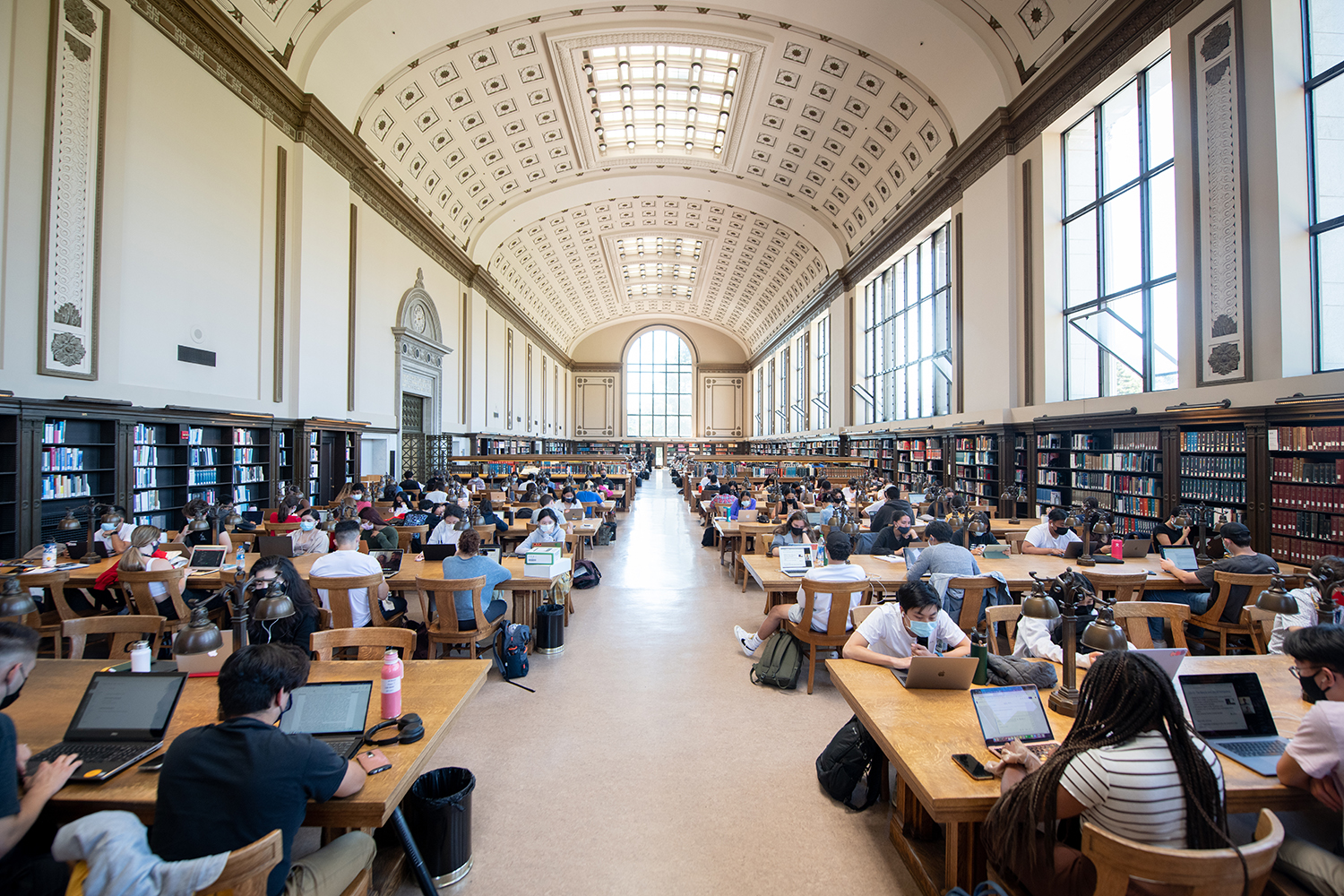Liberal arts education is about truth-seeking — a call to intellectual arms
The deans of UC Berkeley’s College of Letters and Science discuss why having a liberal arts college is important now

Keegan Houser/UC Berkeley
October 4, 2022
Institutions of higher education and, more specifically, liberal arts colleges, have become the butt of resentment in current culture wars based on misinformation and the attack on facts. But UC Berkeley’s College of Letters and Science aims to combat that by continuing to provide an education that focuses on truth-seeking and on knowledge-based discourse and research that give students real hope for the future — a call to intellectual arms.
That’s what four deans from Berkeley’s College of Letters and Science discussed Monday during the second Campus Conversations event of the semester.
“We are people who seek truth, and we are people who seek to combat ignorance,” said Executive Dean Jennifer Johnson-Hanks. “And we share this common commitment to asking more foundational questions, because the truth is too big to approach in small boxes.”
The college, Berkeley’s largest, encompasses 38 departments with 81 majors and involves 75% of the university’s undergraduates and half of its faculty and graduate students.
But given the breadth and depth of the college across so many different disciplines — including math, the sciences and the humanities — it has been difficult to grasp the identity and future of the college, said Johnson-Hanks. And that is something she wants to change through collective discourse with staff, faculty and students.
The College of Letters and Science exposes students to so many different courses and subject matter that they might not fully understand, said Dean of Biological Sciences Michael Botchan, “and that experience is invaluable.”
“By studying Shakespeare or French literature, you actually can become a better physician or a better scientist,” he said. “(Because) to be a scientist, you need to know that what you understand now, may need revisions in the future, and may require bold — high risk and high reward — changes in your thinking and how you conduct your research. … And (Letters and Science) does that in spades.”
Dean of Mathematical and Physical Sciences Steven Kahn said a well-rounded liberal arts education can further contest the blatant attack on facts and the lack of scientific understanding.
“I think the general public has been misled to believe that various theories can be mutually equivalent, independent to the extent that they are based on deductive reasoning,” he said. “That’s a threat and undermines any elements of arguing for truth over falsehoods. It has reached a crisis, and it’s very important for a university with the prominence of Berkeley to take a stand and articulate what it means to actually be well-educated.”
Social Sciences Dean Raka Ray said these challenges are happening at a “moment of great inequality,” and that there is a perception that higher education is elitist and less relevant or rewarding than it used to be.
“When we think of people that don’t think about facts. … I think that is really a reflection of vulnerability and inequality,” Ray said. “And part of what we have to do is to make knowledge-seeking something that is not the purview of only a privileged few. So, that is our task here, as well.”